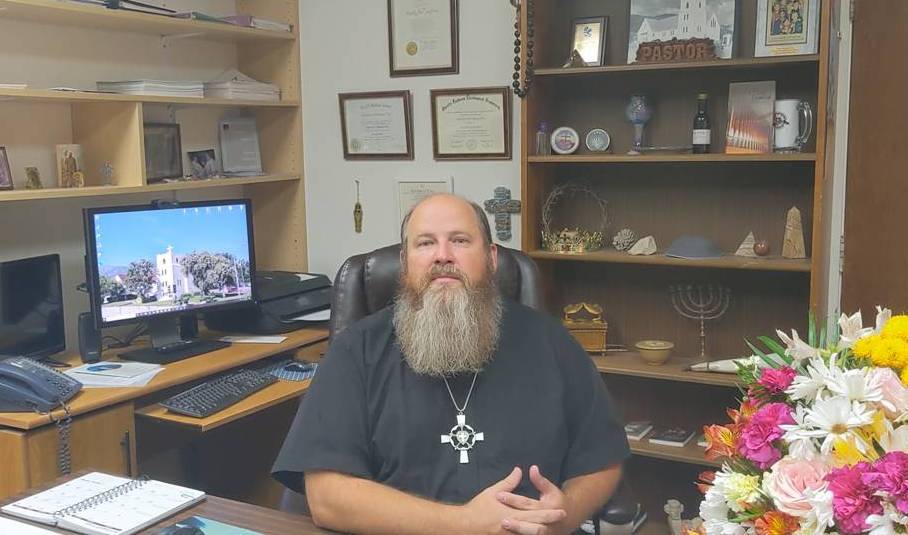I’m sharing a picture of me with my quarantine lockdown beard that I grew back in 2020. This was taken at the height of the lockdown when I was doing video announcements, devotions and messages from my office. And growing this wizard beard was fun for me to do during an otherwise very difficult time for our nation and world.

Since the time of this photograph two years ago, the pandemic has moved into our rearview mirror. As in the rearview mirror of an automobile, we can still see the effects of the virus but the pandemic is now behind us. It’s essentially over since it has moved into an “endemic” reality. We have moved from the pandemic into an endemic phase, which means this virus is always going to be with us as a part of the overall ecosystem of annual illnesses. Consequently, there will always be new variants just as there are with influenza each year.
We have also learned that the expectation of never getting this virus is simply an unrealistic one. The truth is that, if we haven’t had it already, we are all going to get it at some point. But thankfully, due to the artificially activated immunity from the vaccines and boosters, and due to the naturally occurring immunity that comes from getting this illness, we now have widespread “herd immunity” moving forward. In addition to all of this, the various excellent therapeutics that have been developed also give us further confidence that we are free to embrace life and ministry to the fullest once again.
As a congregation of the Church of Jesus Christ, we certainly should never again take for granted the opportunity for connection with God and each other that is provided to us through regular participation in Bible study, choir, ministry committees, worship, and Holy Communion with the Lord at his Holy Table each week. Therefore, “not neglecting to meet together as is the habit of some” (Hebrews 10:25), let us recommit ourselves to the blessed habit and weekly rhythm of congregational life — especially to in-person Sunday morning worship, face to face. Let us resist turning Christianity into something to be consumed electronically, understanding that Christian fellowship, discipleship and spiritual growth happen best in the week-to-week interaction of in-person community, which is beautiful (but sometimes difficult) and always truly necessary for us.
So now, let’s sing loudly together from our pew seats at church. Let’s boldly praise the Lord without inhibition. Let’s resoundingly speak our liturgies and sing our hymns by the power of the Holy Spirit. Let’s walk away from the Lord’s Table each week with a lingering foretaste of the Kingdom of God in our mouths and hearts and souls. And let’s reach out to our unchurched neighbors with the good news and lovingkindness of Jesus Christ, inviting them to the variety of outreach activities and events we are now offering, which include the following:
+ MOLC Summer Day Camp
+ MOLC Trunk or Treat
+ MOLC Holiday Artisan Festival
+ MOLC Community Luncheon
+ And more to come…
Dear brothers and sisters in Christ, let us be changed by what we’ve experienced over the past several years to live more fully, to love more joyfully, to worship more faithfully, and to share the gospel more urgently. And may we always remember that God is with us to guide us, empower us, and embolden us forward in mission and ministry. God is here in our midst, giving us new life and hope and courage.
A very happy and blessed Fall be with all of you!
Together in Christ Our Lord, Pastor Tim
